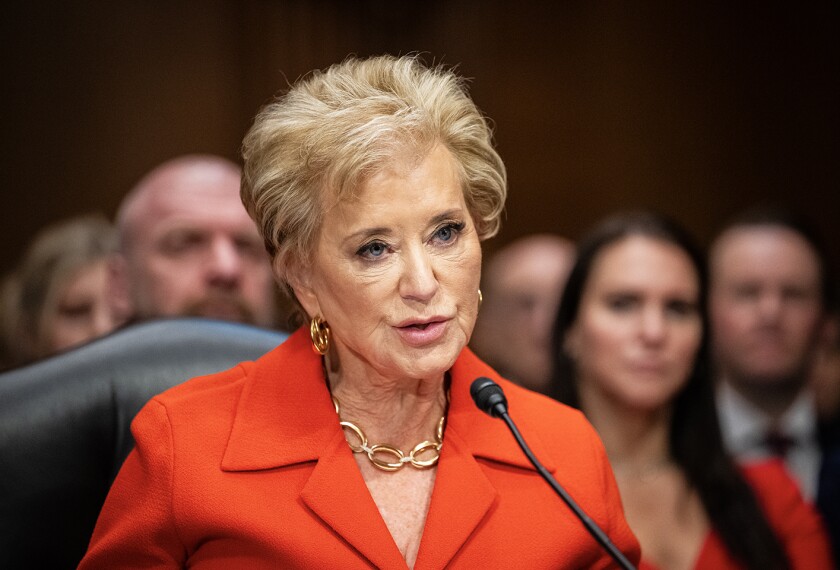California lawmakers have approved legislation giving teacher education programs more flexibility in the amount of preparation they give prospective teachers.
Though the bill was signed into law last month with little fanfare, it may be the biggest single change made to teacher preparation in the Golden State in more than 40 years.
Unlike most states, California all but eliminated the undergraduate education degree in 1970 and restricted formal teacher-preparation coursework to a year. Most aspiring teachers in the state hold a bachelor’s degree in a content field, then complete a yearlong “postbaccalaureate” program incorporating both pedagogical skills and student-teaching.
That approach had been criticized by teacher education faculty members who felt that there was simply not enough time to cover a mounting number of state requirements, including techniques for teaching reading, integrating technology, and working with English-language learners.
The new law permits education programs to offer up to two years of formal preparation, an amount that would also outpace what many alternative routes in the state offer.
“Almost all the programs have been stuck in this little nine-month credential box at the end of undergraduate,” said Linda Darling-Hammond, the chairwoman of the California Commission on Teacher Credentialing, the state’s independent teacher-standards board. “This is part of an attempt to allow more flexibility in when and how people get trained. If they want to begin in undergraduate, we hope to open that up to them.”
Under Scrutiny
Outside groups had targeted the yearlong restriction as well. The National Council on Teacher Quality, a Washington-based research and advocacy organization, contended that the postbaccalaureate programs did not sufficiently vet elementary teachers’ content knowledge, especially in mathematics—and that with only a year of pedagogy coursework permitted, candidates did not have time to fill in the gaps.
Before the change, only a handful of California institutions were permitted to offer “blended” programs at the undergraduate level coupling a content major with preparation classes.
Teacher-preparation programs in the state generally welcome the change and say they can build on existing efforts.
Heather Lattimer, the chairwoman of the department of teaching and learning at the University of San Diego, said her institution’s one-year postbaccalaureate credentialing program was less popular among students than a two-year program that offered a master’s degree alongside the certification. Faculty members also saw the two-year program as the stronger one, because its length permitted better matching of coursework and student-teaching, she said.
“We counseled students because we wanted them to have the additional time to engage in the learning,” she said. “We need the fieldwork and the coursework to be combined, to offer opportunities for teachers to go out and experience teaching in the field and have deep conversations with faculty.”
The California State University system, which supplies a majority of the state’s teachers, also supported the bill.
Money Matters
Though the legislation was not initiated by the credentialing board, it helped shape the draft, recommending the deletion of a proposal to restore the stand-alone undergraduate education major.
Less clear is whether the changes could also be a financial boon to the state’s teacher colleges, which have suffered enrollment declines in recent years. According to data from the credentialing board, the state produced 16,450 new teaching credentials in 2011-12, a decline of 30 percent from five years prior. An additional year of tuition could help programs recoup some of their lost revenue, though programs would also need to consider potential enrollees’ cost concerns.
But Ms. Darling-Hammond did not expect most postbaccalaureate programs to expand to two years. Instead, she believes that the blended approach will become more popular among the state’s public institutions, as well as models in which students complete most coursework as undergraduates and experience a yearlong student-teaching experience in a fifth year.
“Students will be paying for their undergrad education anyway. They might as well get some purchase on their vocational degree rather than having to wait,” she said. “There will still be a market for short and cheap, but there is also a market for quality.”





